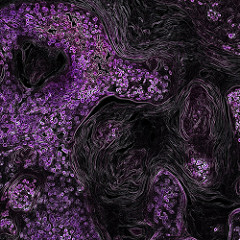In a recent study led by Dr. Chad Pecot, an assistant professor of medicine at the University of North Carolina, researchers found a way to block the KRAS oncogene, a gene known for its potential to cause cancer when mutated. The KRAS oncogene contains information that tells cells how to make KRAS, a protein that essentially signals the cell to grow and stay alive. Mutations in the KRAS oncogene can lead to the creation of KRAS molecules that “overdo” their job, leading to the extensive cell reproduction implicated in cancer. These mutations occur in 30% of cancers, and scientists have been trying to stop this gene for decades.
In this study, researchers attempted to block the KRAS oncogene using RNA interference (RNAi). The KRAS oncogene is made up of DNA that contains directions for the cell on how to build KRAS. The DNA is transcribed to messenger RNA (mRNA), which delivers these instructions to other parts of the cell so that KRAS that be made. During RNAi, specialized small interfering RNA (siRNA) molecules bind to the mRNA and instruct enzymes to destroy it, preventing the mRNA from relaying its information and halting the formation of KRAS.
Image source: Science Photo Library – PASIEKA
When tested in cell cultures, this approach led to the destruction of over 90% of KRAS mRNAs, hampering cancer growth. It also slowed tumor growth in mice and reduced metastasis, the spread of cancer cells to other organs.
While the results of this study demonstrate the potential of RNAi in reducing cancer caused by KRAS gene mutations, it is important to find a way to target only the mutated form of the KRAS oncogene and not the normal form, which is needed for normal cell growth.
Feature Image Source: Kras-Driven Lung Cancer by NIH Image Gallery










